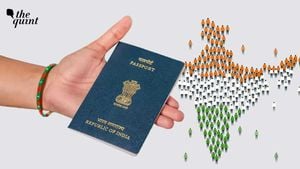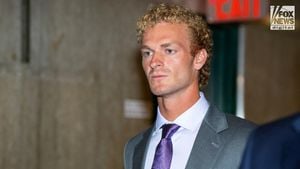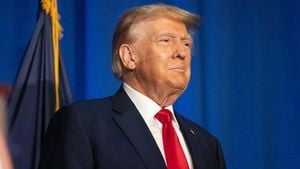Vietnam stands at a pivotal moment, grappling with substantial political changes and leadership transitions as it seeks stability and continuity amid recent turmoil. With the recent election of Luong Cuong as the new president, the nation is approaching the restoration of its implicit power-sharing arrangement—a hallmark of its socialist governance. Cuong's swift ascent reflects not only the internal dynamics of Vietnam's political environment but also the necessity for coherent leadership following significant upheavals.
Luong Cuong, now the fourth individual to fill the presidential role within just 18 months, was appointed following the resignation of To Lam, who held the presidency even as he was named general secretary of the Communist Party. Though Cuong, at 67, has extensive military experience, the presidency is largely symbolic, leaving the general secretary position—currently held by To Lam—as the primary source of authority.
This state of affairs arises from months of unrest marked by the deaths of political figures and the resignation of former presidents, generating uncertainty about the nation’s political future. Notably, Nguyen Phu Trong, the former general secretary, passed away after guiding Vietnam’s leadership for over 13 years and championing rigorous anti-corruption measures. His death has left not only gaps but also challenges for the party and the government as they navigate this transitional phase.
While Cuong has pledged to bolster national security and modernize the armed forces, observers note he wields limited direct influence as president. His past roles within the Politburo and the military highlight his allegiance to the established leadership but raise questions about his ability to effect genuine change. Experts like Zachary Abuza suggest Cuong's background as primarily party-oriented, which could signal continuity rather than innovative governance.
The recent shifts within the upper echelons of Vietnam's leadership reflect the growing dominance of military and security figures, as both Cuong and Lam hail from these sectors. This consolidation poses potential risks and rewards, as critics argue it may lead to increased repression, focusing on staving off dissent and maintaining state control. Free speech advocates like Ben Swanton express concern over the prospect of growing state surveillance and repression under Cuong's presidency, who some view as merely reinforcing Lam's strategies.
Simultaneously, Cuong's ascension is positioned within the broader narrative of anticipated stability leading up to the 2026 Party Congress, wherein all senior positions will again undergo reevaluation. The hope is for equilibrium between military and police factions, as emphasized by researchers like Nguyen Khac Giang, who predict this may diminish major disruptions within the political framework.
The recent political realignment is indicatively aligned with economic aspirations. Vietnam is poised to build on its considerable economic growth, positioning itself as the foremost manufacturing hub in Southeast Asia. High-profile engagements and international collaborations are becoming more common as the country aims to leverage its economic potential amid regional competitive pressures.
This transitional political phase coincides with significant initiatives aimed at fostering Vietnam’s international relations, exemplified by Prime Minister Pham Minh Chinh's recent visit to Qatar. This historic visit marked the first by a Vietnamese prime minister to Qatar in 15 years, and it served to strengthen the two nations' ties through cooperation agreements spanning various sectors including energy, trade, and cultural exchange.
Deputy Prime Minister and Foreign Minister Bui Thanh Son articulated how this visit bolstered both nations' initiatives for clean energy, digital transition, and economic collaboration, framing it as beneficial for all involved. The agreements signed lay the groundwork for Vietnamese products to gain more visibility within the Qatari market, enhancing trade relations and creating opportunities for Vietnamese investments.
Vietnam's quest to modernize and update its approach to international partnerships, particularly with energy-rich nations like Qatar, reflects its broader ambition to establish itself on the world stage. This international engagement is paralleled by internal efforts for governance improvements, being driven by the current political leadership.
Despite the rapid changes, experts remain cautiously optimistic about Vietnam’s political horizon. The balance within the leadership is central as the country navigates not only its internal politics but also its relationships with global powers. The power-sharing arrangement has historically contributed to stability, which scholars such as Hanh Nguyen believe can help ease tensions amid the fluid political climate.
Through these transitions, Vietnam is not merely focusing on continuity; rather, it aims to use its dynamic political structure to facilitate concerted action toward economic development and international collaboration. The interplay between military figures at the helm and the nation's growing economic influence may well determine how effectively it can navigate the upcoming challenges of governance and global engagement. Will the new leadership manage to establish the necessary stability to capitalize on Vietnam's burgeoning opportunities? The coming months will reveal much about the effectiveness of Cuong's presidency and the political stability of Vietnam.



